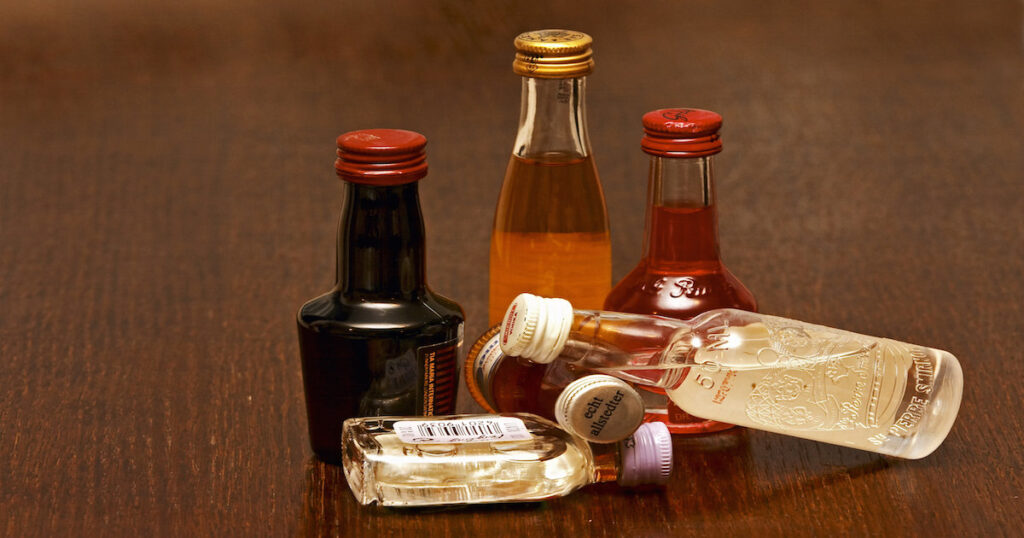
How-Do-Small-Wine-Bottles-in-Bulk-Compare-to-Standard-Wine-Bottles
When purchasing wine, the choice between small wine bottles and standard-sized ones often depends on your needs and preferences. The growing trend of buying small wine bottles in bulk has sparked interest among wine enthusiasts and event planners alike. But How Do Small Wine Bottles in Bulk Compare to Standard Wine Bottles? Let’s explore the key differences, advantages, and scenarios where each shines.
1. Volume and Serving Size
The most obvious difference lies in the volume. Standard wine bottles typically contain 750ml, equating to about five glasses of wine. Small wine bottles, often referred to as “mini bottles” or “splits,” usually hold 187ml (a single serving) or 375ml (half a bottle). This difference in size directly influences their use:
- Small Bottles: Perfect for portion control, single servings, or when sampling different wines.
- Standard Bottles: Ideal for sharing among a group or enjoying over multiple sittings.
2. Cost Efficiency
Buying wine in bulk generally offers cost savings, but the size of the bottle can influence the price per milliliter:
- Small Wine Bottles in Bulk: While the per-unit cost of small bottles is often higher, bulk purchases can mitigate this difference, making them a cost-effective choice for specific purposes like events or gift baskets.
- Standard Bottles: Generally more economical for everyday consumption or storage since the packaging cost is spread over a larger volume.
3. Convenience and Portability
Small wine bottles excel in convenience:
- Small Bottles: Lightweight, easy to transport, and perfect for outdoor events, picnics, or corporate giveaways. Their size makes them compliant with restrictions in settings like concerts or airplanes.
- Standard Bottles: Bulkier and less portable, they are better suited for home use or larger gatherings.
4. Freshness and Waste Reduction
Preserving the quality of wine is a major consideration:
- Small Bottles: Since they are single-serving or half-serving, there is little risk of leftover wine losing its flavor or freshness. This is particularly advantageous for casual drinkers or those who enjoy trying multiple wines.
- Standard Bottles: While suitable for groups, any leftover wine must be stored carefully to avoid spoilage. Options like vacuum seals can help, but not everyone prefers this extra step.
5. Versatility and Usage Scenarios
Each bottle size serves unique purposes:
- Small Bottles:
- Favored for weddings, corporate events, and gift sets.
- Ideal for wine sampling or creating personalized tasting experiences.
- Convenient for single-person households or occasional drinkers.
- Standard Bottles:
- The go-to choice for regular wine drinkers or family meals.
- Preferred for aging wines since larger bottles often maintain quality better over time.
- Suitable for entertaining larger groups.
6. Environmental Considerations
Sustainability plays a significant role in today’s consumer choices:
- Small Bottles: Require more packaging material relative to their volume, potentially increasing the environmental impact per liter of wine. Recycling programs help mitigate this effect.
- Standard Bottles: Less packaging per liter, making them a greener option for those concerned about waste.
7. Aesthetic Appeal and Presentation
Presentation matters, especially for gifting or formal events:
- Small Bottles: Their compact size and often elaborate labeling make them visually appealing and perfect for gifting or as party favors.
- Standard Bottles: While elegant, they lack the novelty factor of mini bottles and are more traditional in appearance.
Conclusion
Small wine bottles in bulk and standard wine bottles both have distinct advantages, and your choice depends on the intended use. Small bottles excel in portability, portion control, and versatility for events, while standard bottles remain the cost-effective and environmentally friendly option for regular consumption and aging.
Whether you’re planning a large event, looking for unique gift options, or simply trying to reduce waste, understanding the differences between these two options ensures that you make an informed decision tailored to your specific needs. Ultimately, the joy of wine lies not in its size but in the experience it delivers.







